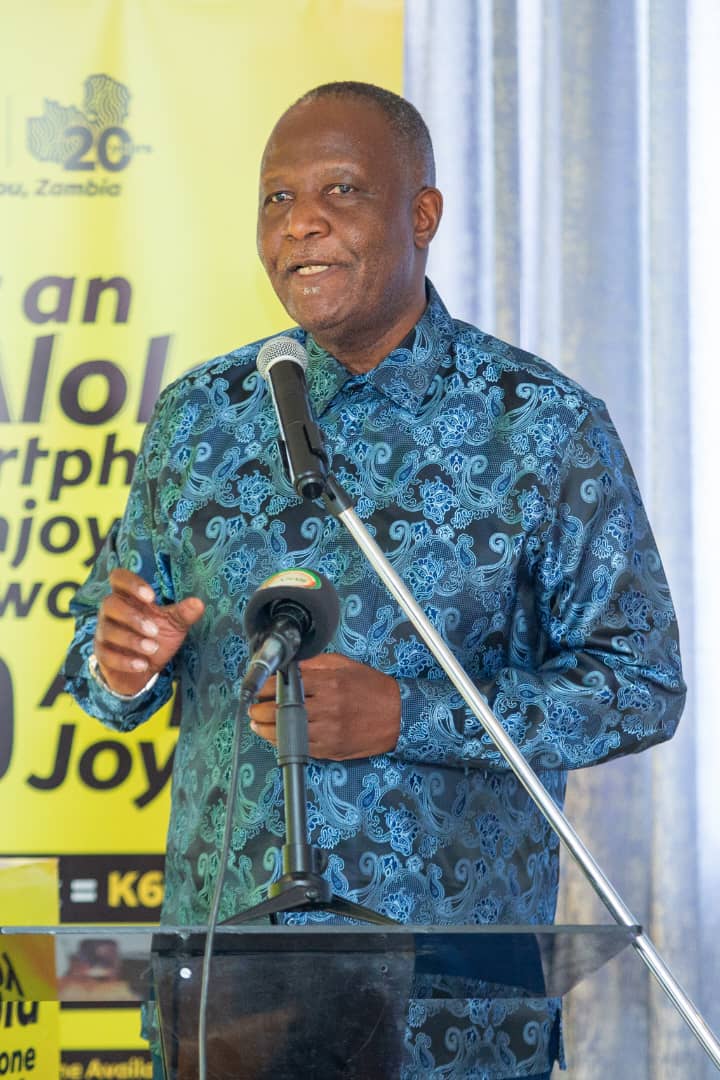Two years ago, Margaret, a 26-year-old Kenyan artist, realised she could find a global market for her art by selling NFTs, or non-fungible tokens, online in return for cryptocurrencies. Soon she was selling digital artworks to clients in Europe and North America. Like many young Africans, she felt financially liberated by decentralised cryptocurrencies.
At the heart of the continent’s boom was FTX, an international exchange run by US crypto guru Sam Bankman-Fried which caused shockwaves in the global market when it dramatically collapsed in November. African users would buy cryptocurrencies like bitcoin or ethereum, or stable-coins like Tether, which tracks the US dollar, on FTX.
The exchange would pay an 8% interest rate on those assets. Others would buy and sell crypto on the platform to remit or to make daily transactions. Some were even paid through FTX by foreign companies. According to reporting from Techcrunch, citing insiders, FTX processed billions of dollars monthly in Africa before going bust.
Global shockwaves
Although Margaret holds her funds on a different platform, some of her friends, several of whom were paid by their employers through FTX, lost hundreds of dollars.
“I wasn’t affected personally, but such a scenario could easily happen here. There are so many startups and exchanges coming up. And if it was me and all my money was there I would be in hospital by now,” she tells African Business. “You just feel that you can never be 100% safe.”
An unknown number of African customers held funds on the Bahamas-based platform, as did numerous African startups. On 13 December, police in the Bahamas announced the arrest of Bankman-Fried for alleged “financial offences” against laws in the US and The Bahamas.
While crypto proponents insist the technology has a future in Africa, the major industry shock could put the brakes on its rapid growth.
Popularity with African customers
Many Africans who took a punt on cryptocurrencies did so on FTX, which launched in 2019. Bankman-Fried’s company advertised extensively in Africa, hiring a PR and marketing manager for the continent and holding events in Ghana, Nigeria and South Africa. It even partnered with Nigerian universities to hold seminars and conferences and enlisted university campus ambassadors working on commission.
FTX and Alameda, its sister company and trading arm, invested in a slew of African companies. Bankman-Fried, who was a key member of the so-called Effective Altruism philanthropic movement, told an interviewer last year: “One thing that a lot of people miss is the enormous amount of good that you can do in Africa, for instance. That’s where the most under-served globally are and where there’s a whole lot of lowest-hanging fruit in terms of being able to make people’s lives better.”
Africans hit by collapse
Yet African customers have been badly affected by FTX’s sudden collapse. In early November, rival exchange Binance, which had been in discussions with FTX over a possible takeover, publicly questioned the amount of cash the exchange had on hand, prompting a panicked sell-off.
FTX soon found itself unable to meet withdrawal requests and halted them. Bankman-Fried has said he “didn’t knowingly commingle” FTX customer funds with Alameda’s.
Within days, FTX had filed for chapter 11 bankruptcy and the firm – which is now looking for funds to cover $8bn in withdrawal requests. In its first bankruptcy filing the firm said it expects to have more than one million creditors.
With panic withdrawals, many of them unmet, in countries including South Africa, Egypt, Uganda, Tanzania and Senegal, an unknown number of African users are thought to have lost funds.
Meanwhile many users in the Bahamas, where FTX is based, and the US, were reportedly able to withdraw their funds before the full crisis hit. On a continent where millions live on $1 a day, Uwakwe says, “every dollar counts and somebody who loses $100 in Nigeria probably has lost two months salary… They should be held accountable. If you wouldn’t let an African user get access to their funds, then nobody should be allowed [to].”
African companies with direct exposure to FTX were also affected. Nestcoin, a Nigerian crypto startup that held around $4m of funds raised from investors on FTX, which it cannot retrieve, was forced to lay off employees.
The firm held a “significant” portion of the stablecoin investment it used for day-to-day operations on FTX, it said in a letter to investors. FTX had also participated in fundraising rounds for startups across Africa, according to reports.
Towards a global crypto winter?
Trevor Hambayi, an independent economist in Lusaka, says a fall had been coming, particularly with the lack of regulation in the sector: “Investment strategies are very cyclical. They have times when they are going positively north and at some time the downturn will come. It’s just a question of what mitigating factors have you put in place. But a lot of times individuals tend to lose out.”
Now, though, experts are concerned the collapse could usher in a global crypto winter. In Africa, where the sector was delicately poised, it could have more lasting consequences, by making institutional investors more wary, hitting the African NFT market, which was already in a slump according to analysts, and turning off the general public.
Blow to expanding market
Crypto evangelists nevertheless point to reasons for optimism in Africa.
At roughly $100bn annually, sub-Saharan Africa lags behind the rest of the world in cryptocurrency transaction volume, according to a report by Chainalysis. Yet its growth is an impressive 16% a year.
Meanwhile, Africa has some of the world’s best-developed cryptocurrency markets boasting integration of digital currencies into everyday financial activity. Nigeria ranks 11th globally in crypto adoption while Kenya and Morocco are in the top 20 and South Africa, the continent’s largest market by volume, is 30th.
“Crypto adoption in Africa, and Nigeria specifically, has really gone from strength to strength,” says Lucky Uwakwe, CEO of Lagos-based tech firm SaBi Groups and an exponent of blockchain (the underlying technology behind cryptocurrencies) in Africa.
Today, many young people in Africa are turning to cryptocurrencies to build wealth and send remittances and payments, as opposed to wealthy countries where it is mainly used to multiply existing assets.
Uptake has been driven by the volatility of local currencies, such as the Nigerian naira and Kenyan shilling, with a belief that savings can be better preserved with bitcoin and stablecoins, the latter of which is pegged to real currencies such as the US dollar.
They also use it to buy things: retail transactions make up 95% of cryptocurrency transfers in sub-Saharan Africa, Chainalysis claims. Indeed, when cryptocurrency values began to slide in May, causing large transactions by institutional investors to fall, smaller retail transfers actually grew in Africa. Paxful, a peer-to-peer exchange has seen user growth in Nigeria and Kenya rise steadily.
In July in Nairobi, dozens of young people came together for the inaugural NFT conference to share tips on how to make money online, although there is significant potential to attract the capital of older users.
“The youth that are wanting to do this technically speaking do not have the financial assets, whereas the ones with the capacity to be able to invest [on a large scale] are not actually putting their resources there,” says Hambayi.
Africans also use cryptocurrencies to remit, because it costs more to send money from Europe to Africa than any other region. Kenyans overseas can buy bitcoin online, sell it to other users in Kenyan shillings, and then send the funds to family members.
And Nigerian businesses relying on international suppliers are turning to cryptocurrency, Uwakwe says, because the country’s central bank, which has a foreign exchange liquidity problem, prioritises certain sectors, such as manufacturing.
Ghana is expected to achieve similar adoption levels to Nigeria and Kenya, based on current trends and the needs of the local population, Chainalysis reckons.
“Overall, we expect cryptocurrency usage in Sub-Saharan Africa to continue growing as long as residents face issues crypto has proven it can solve for them, such as preserving savings through economic volatility and enabling cross-border transactions in places with strict capital controls,” its report notes.
With much of Africa’s trading done peer-to-peer, or between crypto wallets for everyday transactions, rather than being left in exchanges like FTX, losses might have been cushioned. And crypto proponents insist developing economies in Africa still stand to gain from decentralised technologies.
“There is nothing wrong with the original mantra or bitcoin, or blockchain as a concept,” says Uwakwe. “But it’s hard to convince people who were not sure whether to come into this industry or not now… which means double work for those of us who are building, double work for those of us who are promoting the sector… FTX’s collapse brought us back to ground zero.”
Calls for new regulation
What industry experts, economists and users agree on following the disaster at FTX is the urgent need for regulation.
For years, central banks across the continent have been warning against the use of cryptocurrencies, including in Nigeria, Ghana, Kenya, South Africa, Tanzania, Uganda, Zambia and Namibia, but with public trust in institutions low, warnings did little to dissuade would-be investors.
In Nigerian, for instance, the government prohibited banks from transacting with crypto businesses in 2021 due to concerns around scams and tax evasion, so millions of cryptocurrency holders began trading peer-to-peer. To date, only Ethiopia has taken serious action to regulate cryptocurrencies.
“As much as people don’t want some sort of governance or centralisation, it is going to be necessary,” says Margaret. “This has been a big example of that.”
But even if African countries do attempt to impose regulation, Hambayi says, “their institutions often do not have the capacity to be able to enforce the regulations or actually to monitor (them).”
“You would need to have a fully developed financial market and there are only two or three countries on the African continent that have a fully developed financial market,” he adds, including Kenya and South Africa.
Even in the absence of regulation, many African consumers, particularly the youth, will continue to take a chance on cryptocurrencies, with inflation and unemployment running high. “I wasn’t really shaken by all this,” says Margaret, who is taking steps to secure her funds, such as getting an offline cryptocurrency wallet. “I think it’s a good lesson to learn and an eye opener for many people not to be so trustful.”








